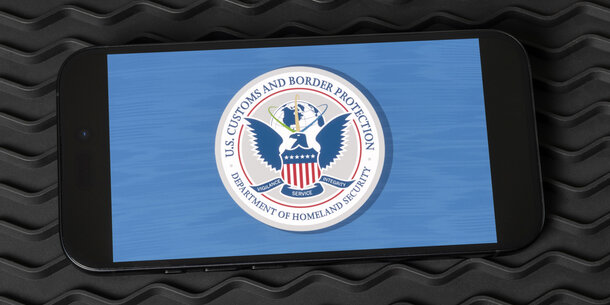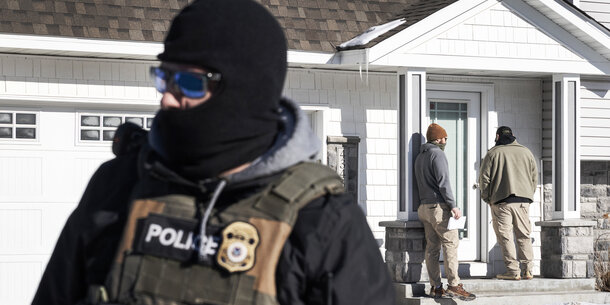Congress is considering whether to reauthorize Section 702 of the Foreign Intelligence Surveillance Act, which expires on December 31. The law allows the government to conduct warrantless surveillance of non-Americans located abroad, but it inevitably sweeps in Americans’ communications as well. Under court-approved rules, the government can perform warrantless “backdoor searches” for these private messages. These warrantless searches for Americans’ communications and what one judge has described as the government’s “persistent and widespread” violations of the rules governing them have raised significant bipartisan privacy concerns in Congress, and lawmakers have vowed not to reauthorize Section 702 without significant reforms.
Scrambling to defend a power that has historically been re-upped with relative ease, the Biden administration has touted Section 702’s importance as a source of foreign intelligence, claiming that it is critical to protecting Americans at home and advancing U.S. interests abroad while largely ignoring the demand for reforms. Indeed, one senior intelligence officials told reporters that the administration would not address the comprehensive reforms proposed by more than 20 privacy and civil liberties groups. In a nod to congressional skepticism of reenactment without changes, the administration has proposed codifying meager and ineffective refinements to internal FBI policy while insisting that other amendments would render Section 702 ineffective. But the government’s own descriptions of how it uses Section 702 offer little indication that reforms would make Americans less safe.
Chief among the reform proposals the government considers unacceptable is a warrant requirement for backdoor searches. Under this scheme, if the government wanted to read Americans’ private communications collected using Section 702, it would have to first obtain a warrant or similar court order, just as it must do when it obtains this information directly. But how would this impact the government’s use of the law?
Most details about how the government uses Section 702 are classified, but officials have claimed that it has contributed to locating foreign terrorists, disrupting assassination plots, and identifying the perpetrators of cyberattacks. None of these successes would have been prevented by a warrant requirement for backdoor searches.
The government says that Section 702 contributed to at least two major counterterrorism operations. The first was the government’s two-year effort to locate Hajji Iman, an ISIS commander who was killed by U.S. special forces in 2016 in Syria. The second was the July 2022 drone strike in Afghanistan that killed Ayman al-Zawahiri, an al-Qaeda leader who helped plan the 9/11 attacks. In both cases, national security officials used information obtained under Section 702, combined with other sources of intelligence, to discover the men’s whereabouts by tracking their personal associates.
Critically, neither of these operations appears to have involved any backdoor searches — all publicly available information indicates that neither Iman nor al-Zawahiri counted Americans among their friends and family. Imposing a warrant requirement for backdoor searches of Section 702 information therefore would have had no impact on these operations.
Section 702 has also apparently been used to identify domestic terrorists. One such instance involved Najibullah Zazi, an American who traveled to Pakistan in 2008 to meet with al-Qaeda leaders and receive weapons and explosives training. When Zazi returned to the United States, he and two accomplices plotted to bomb the New York City subway, but the men abandoned their plan when they learned they were under government surveillance.
Another involved Khalid Ouazzani, an American who pleaded guilty in 2010 to providing material support to al-Qaeda; he sent the terrorist group $23,500. While investigating him, federal authorities discovered that Ouazzani and two “U.S.-based al Qaeda associates” had begun but later abandoned a plot to bomb the New York Stock Exchange.
Notably, neither of these individuals was identified through the use of a backdoor search. Zazi came to the authorities’ attention because the National Security Agency was monitoring the emails of an al-Qaeda courier based in Pakistan. Similarly, NSA officials surveilling an extremist based in Yemen discovered Ouazzani. In both cases, the government obtained a court order permitting additional surveillance of the American involved. Once again, a warrant requirement would not have prevented the government from discovering or investigating either man.
In addition to its value as a counterterrorism tool, the Biden administration has emphasized that Section 702 — and specifically backdoor searches — can be used to investigate and prevent cyberattacks. How this works is unclear, however. In one such example, the administration says that backdoor searches of Section 702 information “played an important role” in verifying the identities of the perpetrators behind the 2021 Colonial Pipeline ransomware attack and in partially recovering the ransom the company paid the hackers. In another case, officials used a backdoor search to identify a planned Iranian hacking campaign targeting Lisa Monaco, a senior official in both the Biden and Obama administrations.
In neither situation would the proposed warrant requirement have served as a stumbling block to government action. The Colonial Pipeline attack had already occurred when the government performed its backdoor searches. It thus seems highly likely that the government could have established probable cause that the searches would reveal evidence of a crime. To the extent it did not have enough evidence to get a warrant, government agents could have asked the Colonial Pipeline Company and any other individuals impacted by the breach for permission to do the searches — just as they could have asked Monaco. When the subjects of a search have granted permission, no warrant is needed.
Finally, the government says that backdoor searches of Section 702 information were used to help “identify the extent of a foreign government’s kidnapping and assassination plots.” Here, too, a warrant requirement for backdoor searches would have been no impediment. Since the government used backdoor searches to investigate the extent of the plots, it already had information about them, meaning that information might have been sufficient to obtain a warrant. Even if that were not the case, it is hard to imagine that the Americans who were the potential victims of these plots would not have given permission for a search that could protect their lives. Moreover, if timing were the issue, constitutional and statutory warrant regimes are both subject to an “exigent circumstances” exception that allows the government to conduct warrantless searches when lives are endangered. Ongoing kidnapping and assassination plots certainly qualify.
The government’s accounts of how it has used backdoor searches include genuine national security wins. Doubtless there are other examples of fruitful backdoor searches that remain hidden from the public. That these searches have generated useful information is unsurprising. As Liza Goitein, codirector of the Brennan Center’s Liberty & National Security Program, has put it, “If you searched 3 million houses without a warrant, you might well turn up evidence of something.” This is no hyperbole — in 2021, the FBI conducted 3.4 million backdoor searches.
The question is not whether Section 702 is valuable, but whether a warrant requirement for backdoor searches would compromise its utility. The Biden administration says it would. But its own Section 702 success stories do not support that claim. The government has provided no reason to believe that a warrant requirement would have made these successes impossible or even impracticable.
Given the overwhelming evidence of government misuse of the authority and the lack of a compelling safety justification against implementing safeguards, Congress should not reauthorize Section 702 without substantial reforms. Chief among these is a requirement that the government obtain a warrant before searching for Americans’ communications in information collected through foreign surveillance. This reasonable reform would protect our privacy — but make us no less safe.



